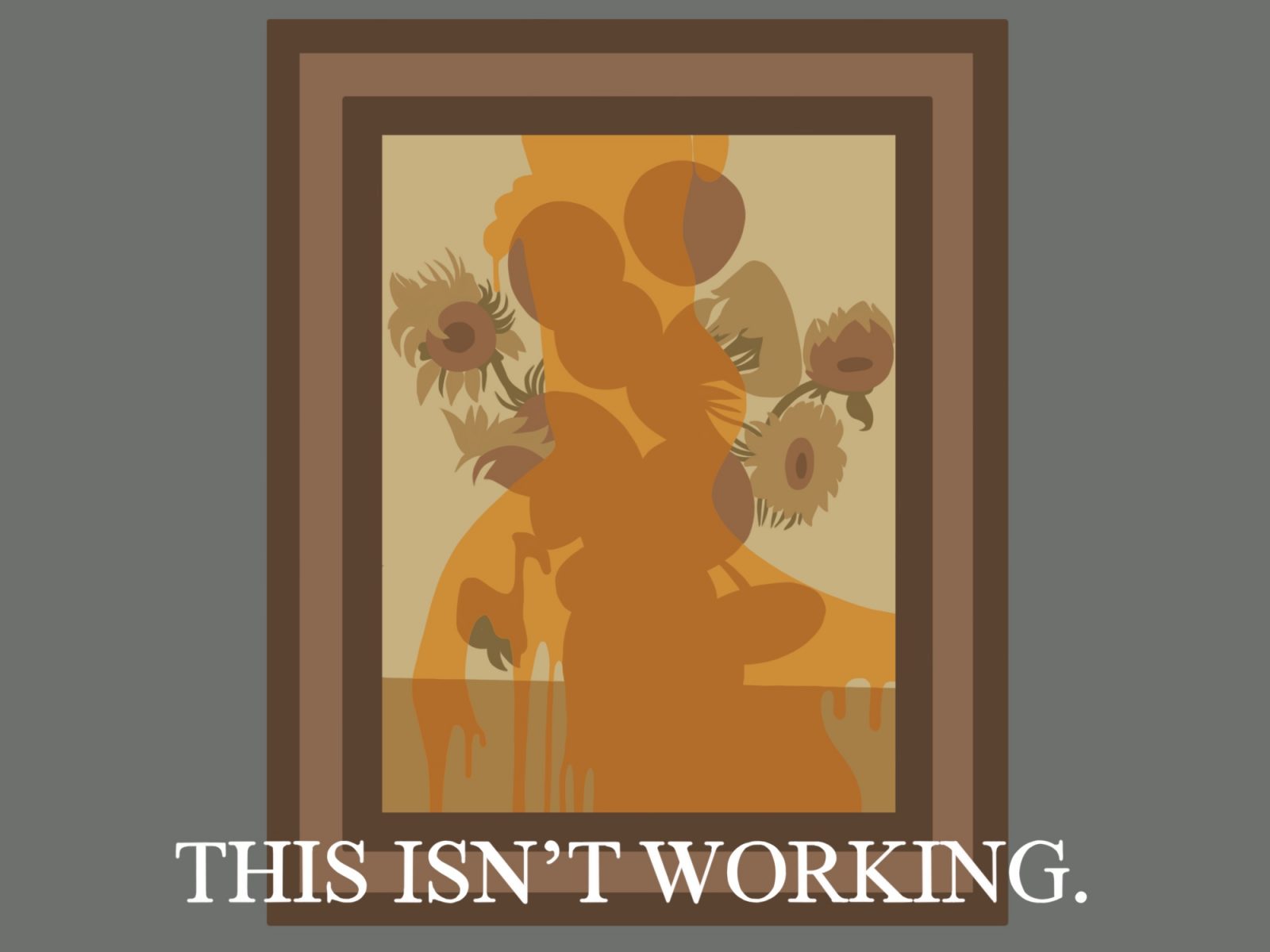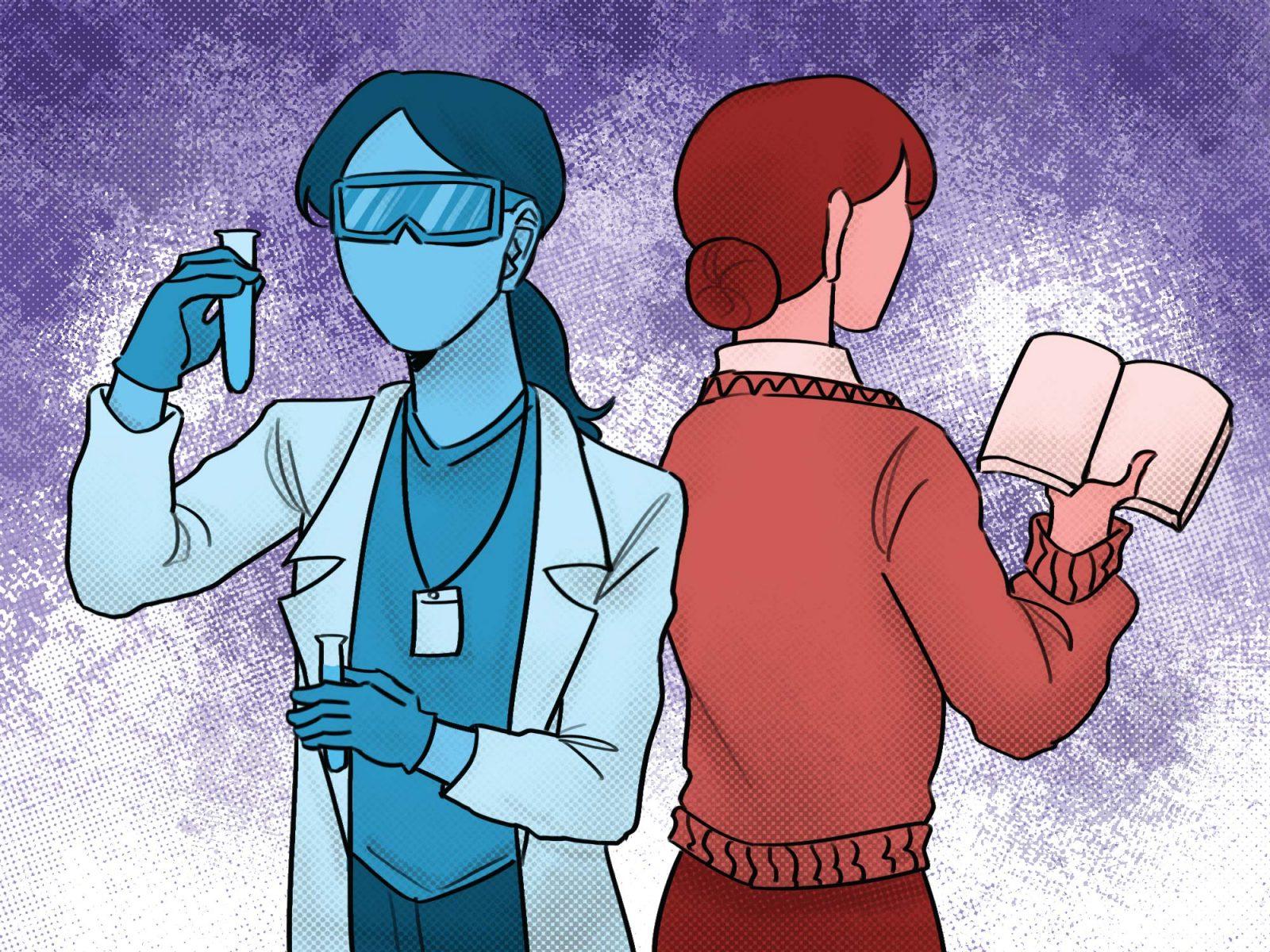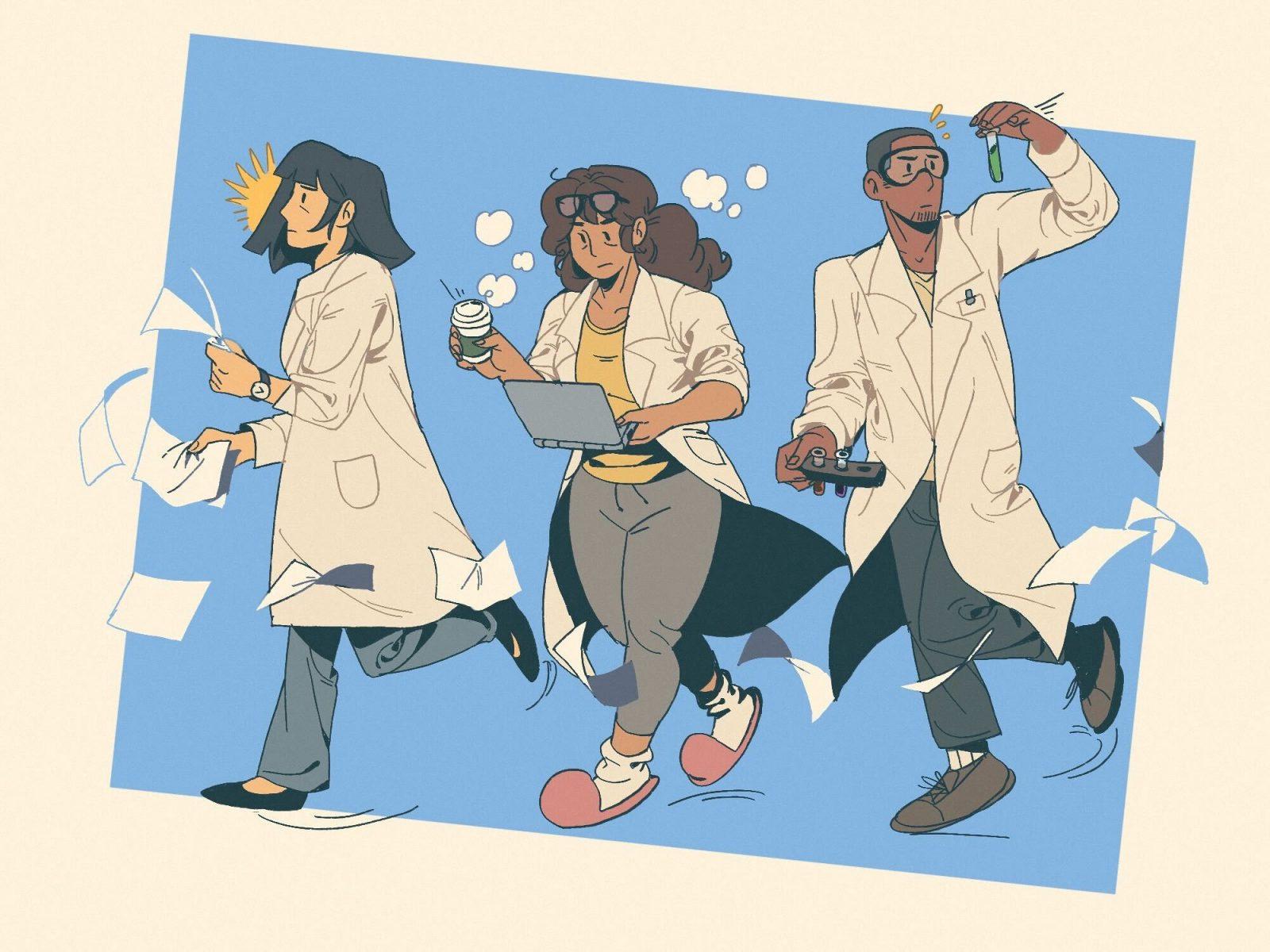The “Mona Lisa” has been the latest target of soup-related climate protests. On Sunday, two representatives of French activist group Riposte Alimentaire climbed under the barrier separating the painting from the room, took off their jackets to reveal their affiliation and threw soup on the painting.
Riposte Alimentaire proceeded to make a statement on X, formerly known as Twitter, about their motivations and demands, which focus on food insecurity and farmers’ rights.

This is not the first time activists have thrown food at famous paintings to support climate justice — a man previously threw cake at the “Mona Lisa” while yelling, “Think of the Earth,” and the climate group Just Stop Oil is famous for throwing soup on Vincent van Gogh’s “Sunflowers” in 2022.
These stunts don’t often damage the original paintings — the “Mona Lisa” and “Sunflowers,” for example, have glass cases over them.
The point of these climate protests is to be shocking and these incidents do often make big headlines. Their message is clear: Why should we care about famous art from the past when we are heading towards a terrible future?
I love climate activism, but not like this.
These soup incidents are provocative, but they are also controversial and polarizing. Again, that can be good for media coverage, which is a big goal for a lot of these organizations.
But I find these actions to be detrimental to the larger goal of climate activism, which is, in fact, to help solve the climate crisis.
A University of Pennsylvania poll found that 46% of people say that nonviolent disruptive actions decrease their support for climate-based initiatives, while only 13% said that it increased their support. Professor Michael E. Mann said that “all age groups showed decreased support,” as well as both Democrats and Republicans, meaning that these sorts of climate protests aren’t popular with anyone.
This is important because solving the climate crisis often comes down to a numbers game: How can we get more people involved in activism, more votes for politicians with eco-friendly initiatives and more general awareness around the issue itself?
None of this can happen when people are deterred because of these huge shock-value stunts.
According to the Pew Research Center, as of 2023, 78% of those who are Democrats or lean Democrat see climate change as a major threat, while only 23% of those who are Republican or lean Republican see it as a major threat. That’s a major disparity.
Rather than actively turning away people who are receptive to the cause, I believe that climate activism should focus on the gray area of independents and moderates. Activists should be trying to make themselves as appealing and approachable as possible, and that doesn’t come from potentially harming priceless national treasures.
It’s time for climate change to step away from moral imperatives and ethical calls to action. That might work for people who already support these causes, but what about everyone else?
Leaning on metrics like morality and ethics ultimately makes the climate crisis feel any combination of preachy and annoying, but it especially makes it feel intangible.
Yes, there are plenty of moral implications within climate change — lots of people will die, starve and suffer as the temperature continues to rise. That being said, there has been soup can after soup can thrown on famous paintings, and the fact that we are still stuck in this cycle proves that we might need to shift tactics.
These shock-value climate protests are good at what they do in the short term. But to fully tackle this issue, we need to think about the long-term game plan.
A lot of us know that climate change is bad, but do we know that the US could lose 10% of its GDP in a severe climate scenario? Why are we talking about whether the soup is tomato or pumpkin when climate and weather disasters cost the US over 165 billion dollars in 2022?
Climate activists could stand to focus much more on anything but morals. Ethics only get you so far — economics, on the other hand, has the potential to point out the ways that climate change impacts the average citizen in a way that is neither holier-than-thou nor esoteric.
Climate change can devastate economies. On the flip side, it poses a huge opportunity for job growth and green innovation.
Let’s start using understandable metrics and real-world scenarios to appeal to people, not ridiculous stunts.





























































































































